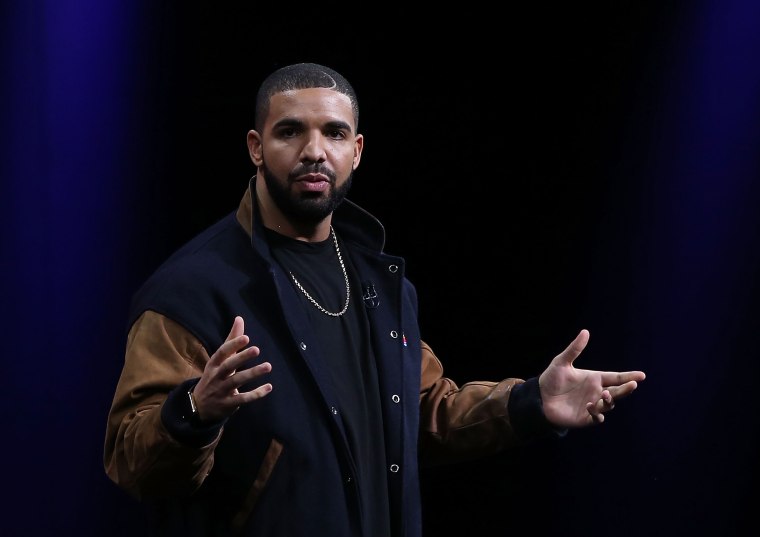 Justin Sullivan / Getty Images
Justin Sullivan / Getty Images
At its annual Worldwide Developers Conference on Monday, Apple announced a software roadmap for the year and the widely expected new streaming music service that will replace Beats. The new service, which will launch on June 30, will be called Apple Music.
In May 2014, Apple bought Beats Entertainment from Jimmy Iovine and Dr. Dre for $3 billion. The deal gave Apple a streaming service, Beats Music, and a hardware brand with tons of artist and consumer cache, Beats Electronics. It also bought them Iovine and Dre’s substantial expertise and credibility with the label execs who would need to get on board with any new consumer offerings. A year later, it appears things have gone according to Apple’s plan. Beats’ headphones and speakers will keep rocking along and the Beats app is at the core of the new Apple Music app, a streaming powerhouse for Apple to put its full brand behind.
Here, with help from two music industry analysts, are the key takeaways from what we know about Apple Music now.
It wants to become the best platform for artists to communicate with fans
Apple brought out Drake on Monday to introduce Connect, a platform for artists to post video clips, messages, and whatever else directly to consumers. A demo showed lyrics from an upcoming Chris Cornell song and an iPhone video of Bastille editing a new track.
The idea is that Connect will become the default medium for artists to communicate with fans — with emphasis on the artists part. “This is something that simplifies everything for the modern musician like myself,” Drake said. He’s not talking to consumers there; he’s talking to other artists. With Connect, it seems Apple Music wants to outshine Tidal —Jay Z’s nascent, embattled streaming service—as an artist-friendly platform.
“Connect is a real market opportunity for Apple because it’s something that doesn’t exist as an integrated platform for artists at this point,” said Aram Sinnreich, a media studies professor at Rutgers University and an expert on streaming music. “It’s smart of Apple to one-up Tidal as being artist-friendly. It’s all well and good to say a handful of artists own the company, but Apple is opening a direct pipeline for a billion customers for any artist who wants to participate.”
It will cost $10 a month—just like Spotify, Rdio, and Beats
The first three months of Apple Music will be free. After that, it will cost $9.99 a month—the same as Spotify, Rdio, and Tidal’s starting tier. Beats Music was also $9.99 a month when it launched, and it offered a $14.99 family plan, to AT&T subscribers. Apple Music will also offer a $14.99 family plan—to everyone.
Like its similarly priced competitors, Apple Music’s core challenge will be getting consumers to pay for music. They’ll try to lure young people away from YouTube and Spotify’s free tier with premium features that will make $9.99 feel like a better deal than streaming with limited playlist control and lots of commercials. For someone who buys most of their music on iTunes, the new plan may be a big cost savings.
“For a long time now, people haven’t needed to buy a song to hear it,” Kyle Bylin, author of Promised Land: Youth Culture, Disruptive Startups, and the Social Music Revolution and user researcher at SoundHound Inc., the developer of the SoundHouse lyrics app, told The FADER. “Now, they can pay the price of an album for unlimited access to songs. It’s a matter of choosing which music service to pay for.”
The Beats brand will live on with Beats 1, a global radio station
Although the new streaming app will not be called Beats, the name will make a cameo in Beats 1, a worldwide music station. The station will be live, with music, interviews, and news. It will be hosted by former BBC DJ Zane Lowe, Hot 97’s Ebro Darden, and London’s Julie Adenuga (who happens to be FADER cover star Skepta’s sister.) Beats 1 will also be a vehicle for Apple to promote exclusive content, as Tidal has sought to do.
If not something that will appeal to a broad cross section of consumers, Beats 1 is an opportunity for Apple to put a big, global wrapper on Apple Music. Having One Playlist to Rule Them All is likely more about Apple stamping its brand than building an audience.
For lean-back listeners, Siri will play the hits
You can already tell Siri to “play ‘Born to Run’” and get the Bruce Springsteen classic if it’s in your catalog. That limitation that will go away with the all-you-can-eat Apple Music, where you’ll be able to say “play the top 10 alternative songs” or “play the top song from May 1982” or “play the song from Selma.”
Those were the examples from Apple’s demo, making it safe to assume Siri will also “play my running playlist” or “play Vince Staples’ new album.” This integration fits with Apple’s already-successful strategy of making its money selling devices. If using Siri voice commands helps make Apple Music your default audio app, then iPhone will be your default smartphone.
Sony, Universal and Warner are on board
Since the launch of iTunes, Apple has had deep relationships with the major labels and Monday's announcement included artists from all three. Translation: the music available in Apple Music should be as comprehensive at launch on June 30 as Beats, Spotify and Rdio are now.
A decade before Taylor Swift pulled her music from Spotify, the iTunes Store was riddled with empty spaces from digital holdouts like Radiohead, AC/DC, Prince, and Madonna. Today, few artists have the market power or incentive to decide they don’t need to be on Spotify. With Apple’s market power, they’ll likely have exclusive content and early premieres of albums and videos, too.
And if someone doesn’t curate your next move, iOS 9 will try to anticipate it
One of Apple’s big developments for iOS 9, due out this fall, is that your iPhone will be able to predict what you’re going to do next and give you some options in the Search pull-down window. If you’re getting in your car and have been listening to a particular podcast or audiobook, iOS 9 will queue it up for you. If you’re at the park where you run every morning, iOS 9 will have RunKeeper and your playlists pulled up. These options will live in a new quick-swipe Spotlight window.
How big a deal will this be? Hard to say. On my iPhone, the RunKeeper, podcast, and music apps are on the same screen. The fact that my iPhone anticipates that I’m about to run three miles may not really make the already-easy interface any easier to navigate. The anticipation feature will likely have a ton of other applications, though.
All of this makes the future of the iTunes store uncertain
Apple did not announce whether it will keep iTunes around for those consumers who want to stick with the current iTunes model—paying by the track and by the album—but analyst Sinnreich said that either way, Apple Music will accelerate the shift from paid downloads to paid streaming.
“A la carte was never a good business model,” Sinnreich said. “When the very first iPod came out in 2002, it’s tagline was a thousand songs in your pocket. Who’s got a thousand bucks to spend to fill one of those things? From the very beginning, the economics of a la carte never matched the ballooning capacities of the devices themselves.”
Still, I can’t imagine iTunes Store going anywhere just yet. Sales of paid downloads and albums are in decline but remain a $2.5 billion business. Although streaming revenue will almost certainly move ahead of individual downloads in 2015, the download market will still be a huge chunk of the record labels’ revenue.
Update 6/10/15: In an interview with Billboard, Apple's Eddy Cue said that downloads will "go on for a long, long time." It seems the iTunes Store is here to stay. "Some of our customer base will stop downloading in general," he continued. "But if you're a downloader today, you’ve got a new music app that's got a great set of features for you."


